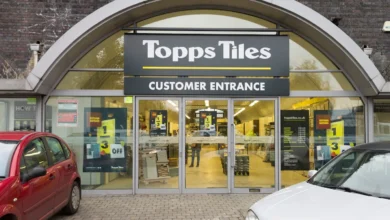What does France’s new environmental legislation mean for UK retail?
Kate Loosmore, International Compliance manager, Reconomy Group company Valpak

Register to get 1 free article
Reveal the article below by registering for our email newsletter.
Want unlimited access? View Plans
Already have an account? Sign in
When it comes to environmental legislation, France is a pioneer. A decade ago, it became the first country to introduce extended producer responsibility (EPR) for textiles and furniture; last year, it added sports equipment, toys, and DIY and gardening equipment to the list. All retailers trading in France – large and small – are included, but many UK businesses are still unaware of their obligation.
The UK shares a long history with one of our closest neighbours. But when Napoleon allegedly called us a nation of shopkeepers, could he ever have imagined an internet age where UK businesses sell clothing, electricals and bedding to their French cousins, by post? As one of the top five EU nations for UK exporters, sales to France play a significant role for us. And with a French e-commerce turnover of €65 billion, there is scope for even more. But UK retailers need to make sure they are operating on the right side of the law.
For retailers, EPR typically brings higher costs and a greater demand for data collection. With the latest schemes asking for a totally new set of metrics, Reconomy Group company Valpak recently visited Paris to report back on what the new EPR categories mean for UK business.
So, what is EPR? EPR is one of the tools created to drive the circular economy. Using the ‘producer pays’ principle, it holds brands and retailers accountable for the cost of collecting, sorting and recycling waste products.
The aim is to incentivise better product design and, ultimately, to build a more circular economy. The French textiles scheme shows what can be achieved. In seven years, collections have risen by 12 per cent and, in 2020, the scheme’s 4,096 members paid €36m (£32m) to the scheme manager Refashion. Of this, €17m (£15m) was paid to sorting operators, €4m (£3.5m) to local community projects and almost €1m (£890k) to innovative projects.
Many common household waste products are difficult to recycle. For example, the EU Strategy for Sustainable and Circular Textiles highlights that just 2.1 million tonnes – around 38 per cent – of the consumer clothing and home textiles sold in Europe are collected each year for recycling or reuse. Waste electricals – particularly the smaller items – also often slip through the net.
With EPR in place, the aim is to make it easier to recycle these products, preserving valuable resources and reducing energy. Valpak’s horizon scanning service highlights the growing trend for environmental legislation around the world, while our sister company RLG operates close to 40 compliance schemes globally.
Businesses trading in France must register, collect data and complete a submission form, and pay the requisite fee. Retailers can manage this themselves, or work with a compliance expert to navigate the process for them.
Data reporting is complex and time-consuming. In France, each system incorporates a different timescale and data requirement. For example, reporting for packaging compliance is annual, furniture takes place four times a year, and WEEE compliance requires a biannual submission.
Under the WEEE regulations, businesses report on weights, units and individual categories for products, while EPR for toys, which has a quarterly data round, asks larger companies to assign an eight-digit code to each product. The first two numbers of the code identify a main category, followed by numbers to represent sub-categories, weight and material. Retailers must report on how many items of each code are sold. Under both sets of regulations, UK online retailers selling direct to consumers in France are obligated, but if products are routed through a third-party distributor in France, then the distributor is often held responsible.
Categorisation can be confusing – should a barbeque be grouped with gardening equipment or electrical equipment? Under textiles EPR, different sizes and styles of product fall under different categories, so jeans will have a separate coding to other cotton trousers.
With the arrival of the new regulations, retailers are being asked to collect a completely new set of data. But even the more established areas undergo updates that result in higher costs and data demands. As recycling targets rise, costs rise too. To give an idea of scale, textiles compliance can cost hundreds of thousands of pounds for clothing retailers. To avoid nasty surprises, retailers need to ensure that new costs are included in forecast budgets.
With government requirements for waste product take-back, online sellers face the additional challenge of providing a take-back service, without any physical stores to accept the material. Planning for future demands is critical.
Under the French schemes, there is no size or turnover threshold to compliance – every business becomes liable as soon as it places an item onto the market. This includes online retailers as well as those with physical stores in France.
Since online marketplaces like Amazon and Ebay were made accountable for non-compliant sellers on their sites, they have started to ask for proof of compliance as a condition for using their services. Some businesses have been threatened with suspension from trading on online sites until they can show proof of compliance.
Coupled with the introduction of a unique identification code for each product sold, this has led to a boom in registration for compliance. For example, registration for packaging compliance has doubled, while the battery scheme has already grown from 900 members to 5,000.
France may be the first, but Valpak’s horizon scanning research shows that EPR is catching on. Sweden, the Netherlands and Spain all have plans to implement textiles EPR; Finland is due to obligate all UK-based companies, and countries as far apart as Canada and Thailand are introducing new legislation.
In each of these cases, the key to success is preparation. We know that costs will rise, that data submission takes skill to navigate, and that EPR is here to stay. To tackle the changes and prosper, retailers need to begin now.
What does EPR in France involve for retailers?
10 regulations, including:
- Packaging
- Batteries
- WEEE
- Textiles
- Furniture
- DIY equipment
- Gardening equipment
- Toys
- Paper Tax
- And more to come
Who needs to comply?
Any business that trades in France – distance sellers and those with stores
What is the threshold for compliance?
Businesses are obligated as soon as they place one item onto the market
What does EPR mean for my business?
EPR means greater costs and a demand for detailed product data
Future
EPR for textiles is arriving across Europe, and Valpak horizon scanning shows global textiles and other EPR on its way
How do I prepare?
Data, data, data.







